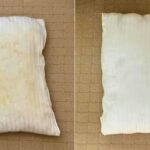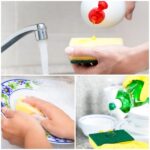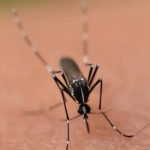Cheap Mattresses: Turning Sleep into a Burden for Your Spine
A mattress priced at just a few hundred thousand dong might seem like a steal, but the real cost is your spinal health and sleep quality. These budget mattresses are often made from recycled foam and low-quality adhesives, emitting a strong, unpleasant odor. Prolonged use can lead to back pain, shoulder stiffness, and morning fatigue. Over time, they can cause spinal misalignment, muscle tension, and rob sleep of its restorative power.
Sleep is a precious time for energy renewal, yet many compromise it by prioritizing cost over quality. A good mattress doesn’t have to break the bank—it just needs certified quality, proper elasticity, and breathability to support your sleep.
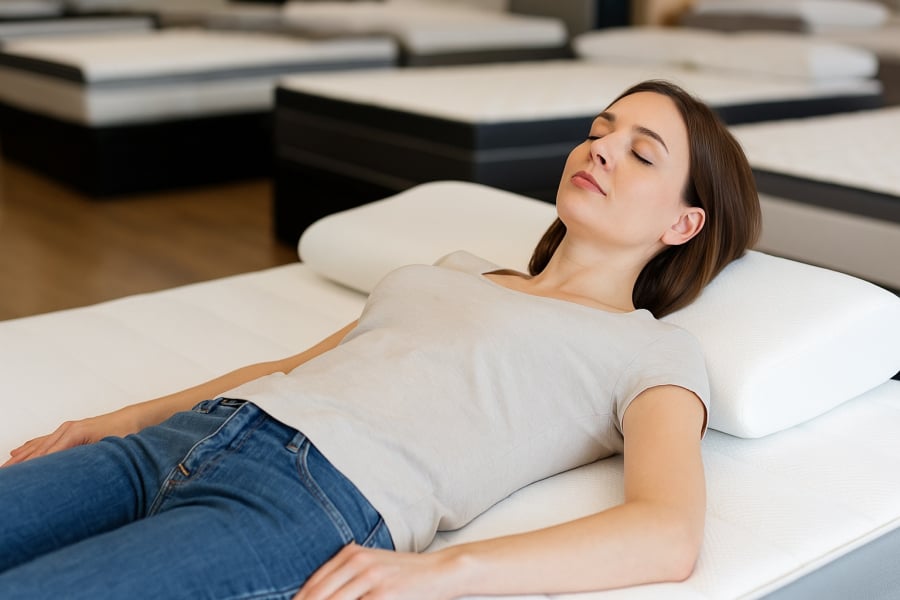
Budget Air Fresheners and Scented Wax: Toxic “Fragrance” in Disguise
Many households use air fresheners or scented wax to keep their homes smelling pleasant. However, cheap variants often contain synthetic chemicals that irritate the eyes, throat, and respiratory system, potentially disrupting hormones with prolonged exposure.
These products merely mask odors rather than purify the air. Artificial fragrances can accumulate in enclosed spaces, forcing you to inhale harmful volatile compounds. For safer odor elimination, ventilate rooms daily, place lemon slices, or use natural essential oils—gentle yet effective solutions.
Cheap Plastic Containers: Silent Toxin Transfer to Food
Affordable plastic food containers are popular for their convenience, but they often leach harmful chemicals, especially under heat. Recycled plastics may contain BPA and phthalates, which can disrupt hormones and fertility over time.
Instead of settling for cheap options, invest in glass or ceramic containers—durable, easy to clean, and safer. If using plastic, choose food-grade options and avoid heating or storing oily foods in them.
Budget Curtains: A Chemical Hub in Your Bedroom
Curtains are often overlooked, but cheap ones are treated with solvents to resist wrinkles, moisture, and hold color. The strong odor when new is formaldehyde—a skin and respiratory irritant.
Opt for cotton, linen, or silk curtains. Always wash and air-dry new curtains before use, and choose lighter shades to minimize dye processing.
Synthetic Rugs: Dust and Allergen Havens
While rugs add warmth, cheap synthetic ones trap dust mites, bacteria, and mold. Low-quality adhesives may release formaldehyde, triggering allergies and respiratory issues, especially in children.
Choose natural fiber rugs like cotton, which are easier to clean and less prone to dust. Vacuum regularly with a HEPA filter and wash rugs every few months for a healthier space.
Cheap Non-Stick Pans: Poison in Every Meal
Non-stick pans simplify cooking, but cheap versions shed toxic coatings when overheated, contaminating food and harming the liver, thyroid, and digestion.
Invest in stainless steel, cast iron, or ceramic-coated pans for safer cooking. Never heat an empty pan—a habit that accelerates coating degradation.
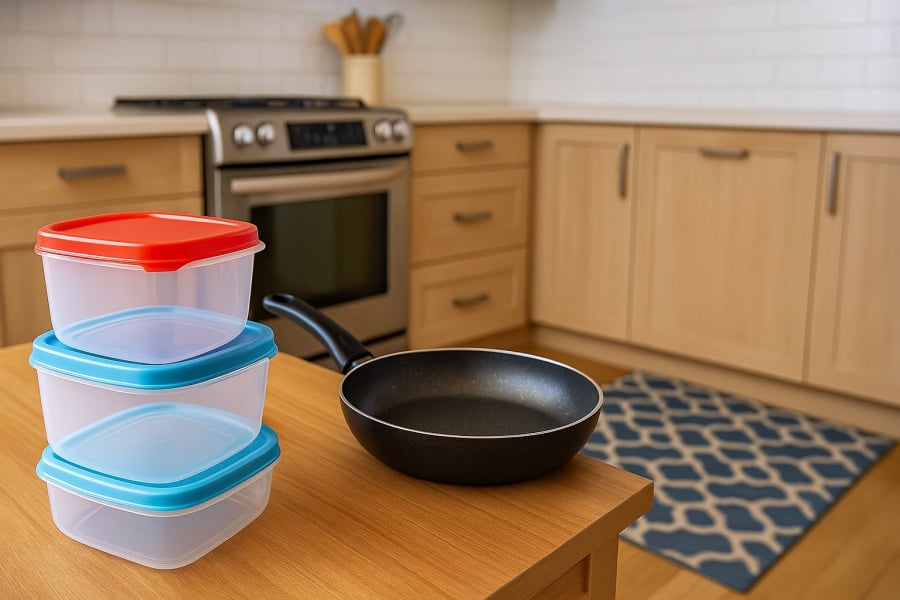
Don’t Skimp on What Matters Most
Frugality is wise, but not at the expense of health. Everyday items directly impact well-being. Prioritize quality and verified sources when shopping.
Sometimes, spending a little extra—a few hundred thousand dong—is the smartest way to save, as nothing surpasses the value of your health and your family’s.
Why Do Hotel Beds Have Four Pillows?
The mystery of the extra pillows in hotel rooms has long intrigued travelers. While it may seem odd to provide four pillows for a maximum occupancy of two, there’s a practical reason behind this. Hotels strive to offer a luxurious and comfortable experience, and extra pillows cater to diverse sleeping preferences. Some guests may prefer a firmer pillow for back support, while others might opt for a softer one to cuddle or elevate their legs. These additional pillows enhance comfort and contribute to a good night’s sleep, ensuring guests wake up refreshed and energized during their stay.
The Ultimate Guide to DIY Dish Soap: 4 Effective and Safe Formulas to Remove Stubborn Stains
A savvy homemaker can easily concoct a cost-effective, efficient, and skin-friendly dishwashing liquid. With a few simple, accessible ingredients, one can whip up a potent cleaner that rivals any store-bought brand. This DIY approach ensures a safe, effective, and economical solution for your dishwashing needs.

























